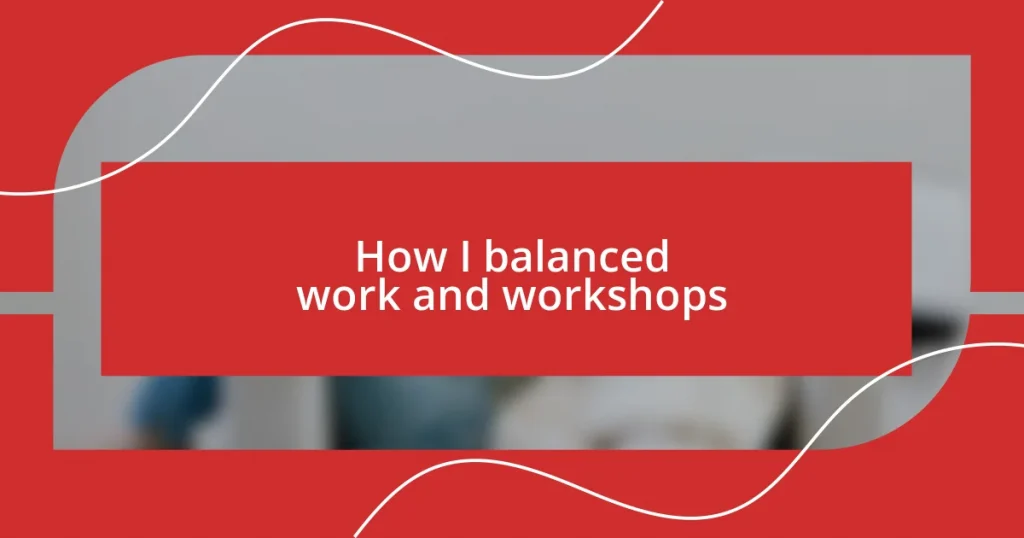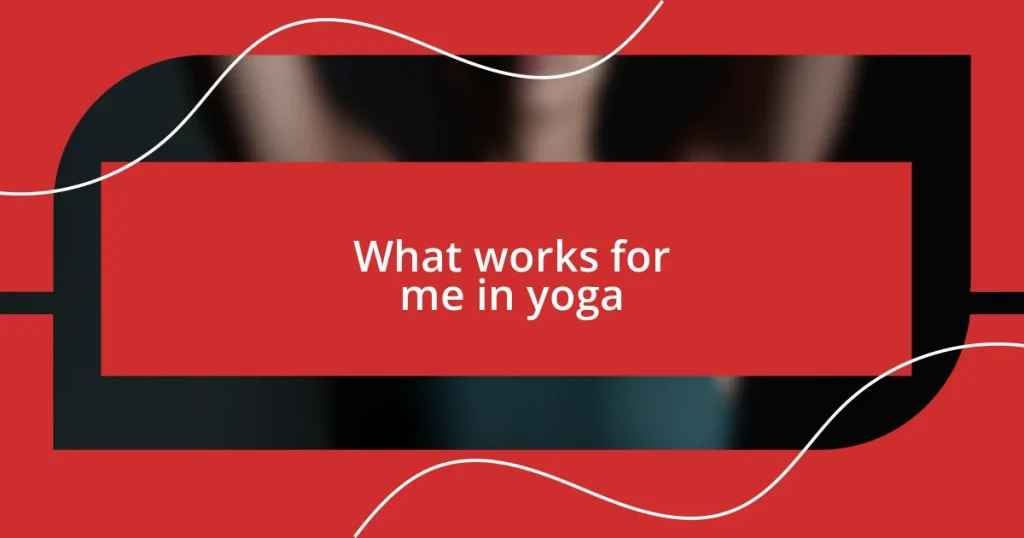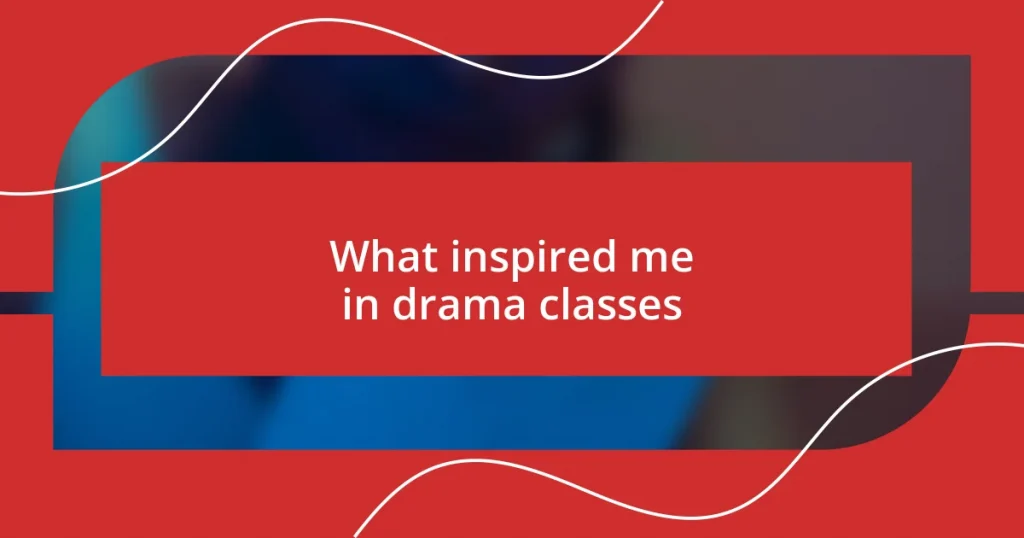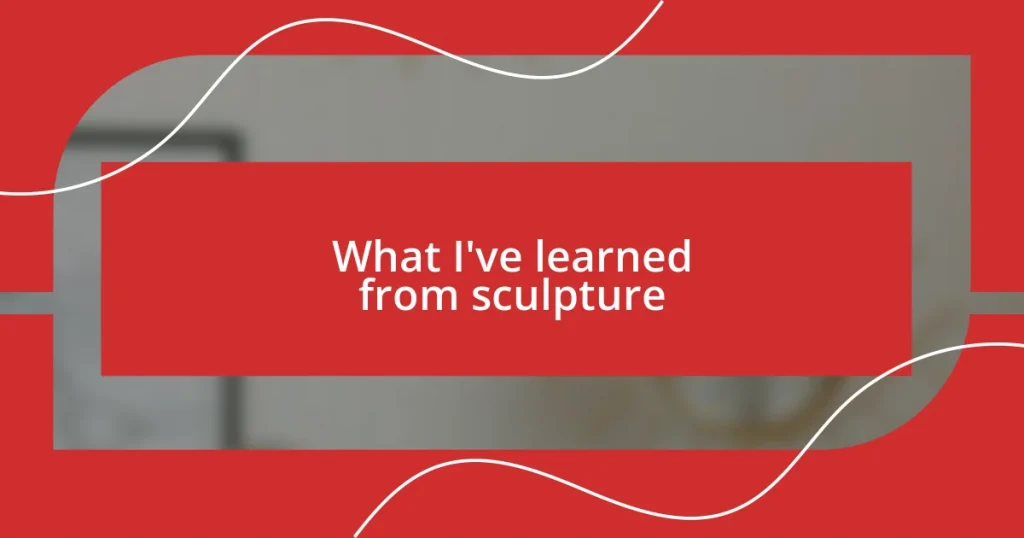Key takeaways:
- Identify and prioritize tasks by urgency and importance to enhance productivity and align with long-term goals.
- Choose relevant workshops that align with career goals and seek feedback to ensure they address specific challenges.
- Maintain work-life balance by setting boundaries, allowing personal time, and regularly evaluating commitments to stay aligned with priorities.
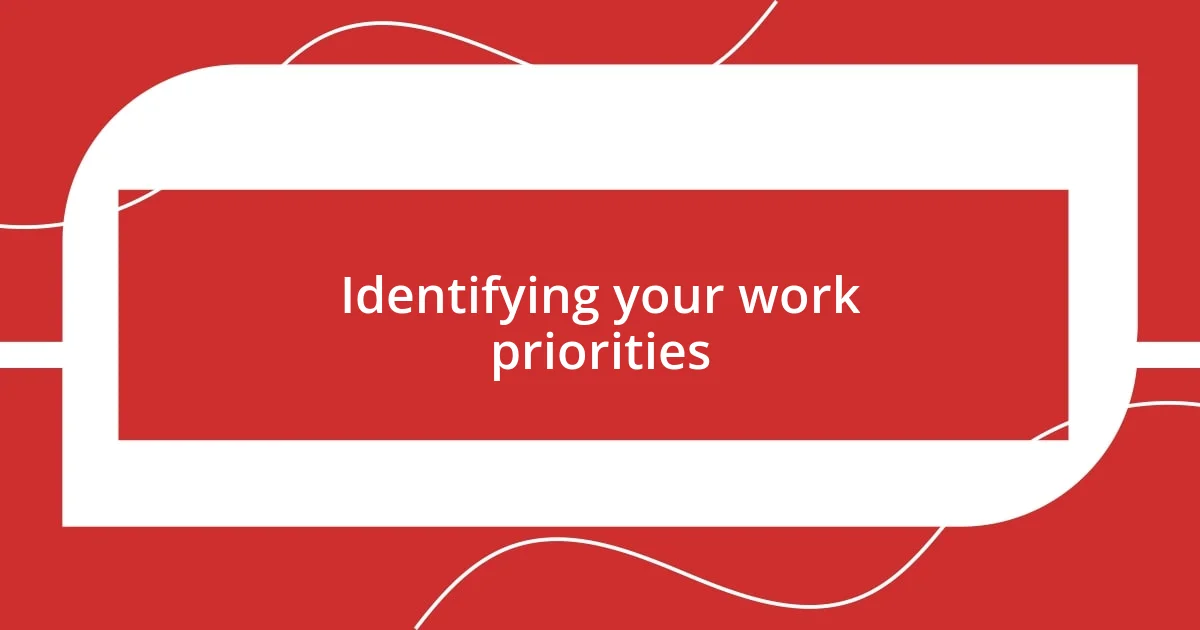
Identifying your work priorities
Identifying your work priorities is a crucial step in achieving balance, especially when juggling multiple commitments. I remember a time when I was overwhelmed with projects, feeling like I was constantly on a treadmill. It was in that chaos that I learned to categorize tasks by urgency and importance. Have you ever noticed how some tasks seem to consume your day without yielding significant results? That’s the kind of work I aimed to minimize.
When I sat down to map out my priorities, I realized that not everything on my to-do list deserved equal attention. For instance, I once had a workshop preparation that seemed daunting, but it became clear that building relationships at that event held even more value. I often ask myself: What will have the most significant impact on my goals? This question forced me to shift my focus towards tasks that aligned with my long-term vision, and it truly transformed my productivity.
Additionally, I’ve found it helpful to revisit my priorities regularly. Life changes, and so do our goals. A few months ago, I had to reassess my workload because a new project came up unexpectedly. I felt pressure, but I also realized that prioritizing was a matter of flexibility and self-awareness. How do you adapt when new opportunities arise? Knowing how to pivot can be the difference between feeling stressed and feeling in control.
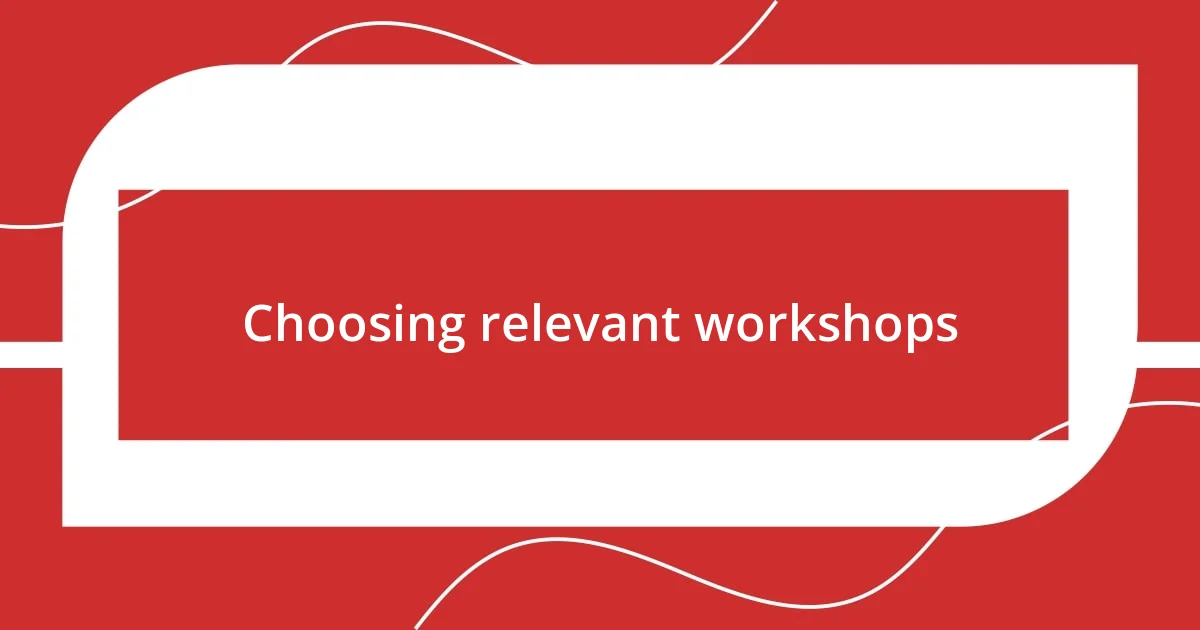
Choosing relevant workshops
Choosing the right workshops can make a significant difference in your professional development. I’m always on the lookout for workshops that not only enhance my skills but also resonate with my career goals. For instance, I once attended a workshop on digital marketing strategies. Initially, I thought it would be just another session, but I walked away with actionable insights that instantly boosted my confidence and effectiveness in my role. It’s important to ask yourself: does this workshop align with where I want to go or where I currently am?
On another note, I learned the hard way that not every workshop is created equal. A few years ago, I signed up for a series of seminars that, on the surface, seemed relevant to my field. However, as I delved deeper, it became clear that they didn’t cater to the specific challenges I faced at work. I realized then that doing thorough research on the speakers and the content can save time and energy. This strategic approach has guided my decisions ever since.
In evaluating potential workshops, I often reflect on my own experiences and seek out feedback from coworkers who’ve attended them. Their insights can shape my choice significantly. Ultimately, finding workshops that complement my work not only enriches my knowledge but also helps create a more seamless integration between professional and personal growth. It’s all about making choices that lead to collective progress.
| Criteria | Workshop A | Workshop B |
|---|---|---|
| Relevance to Career Goals | High | Low |
| Speaker’s Expertise | Industry Leader | Less Known |
| Actionable Insights | Many | Few |
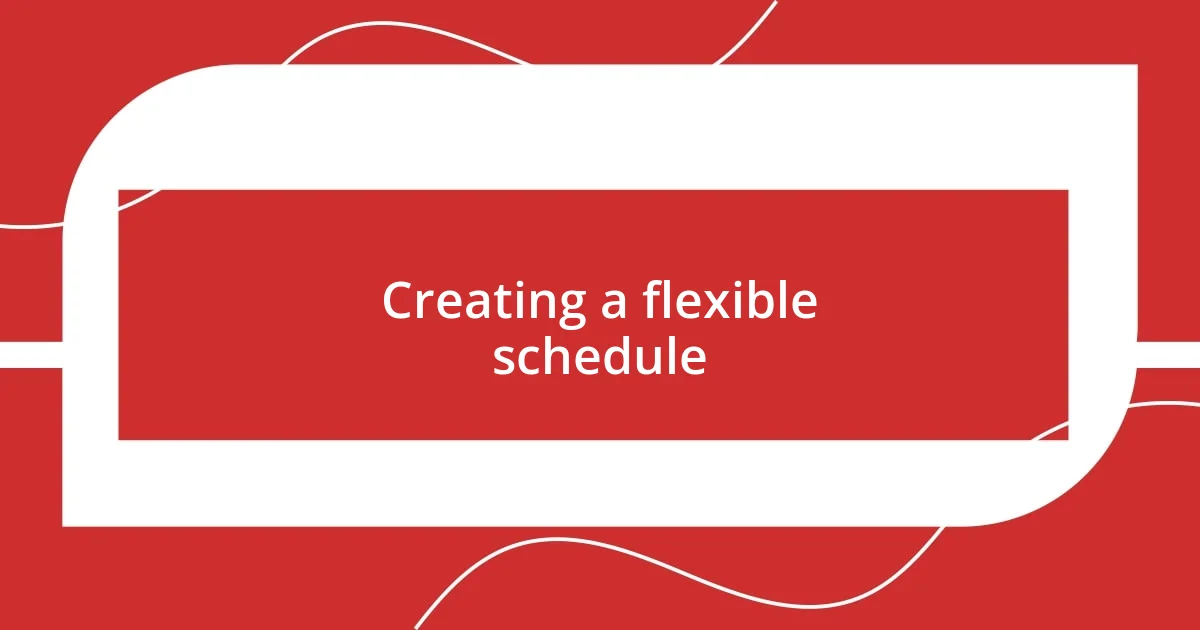
Creating a flexible schedule
Creating a flexible schedule has been a game changer for me. I vividly recall a time when I felt completely boxed in by my commitments, struggling to find space for my workshops. It was during a particularly busy week that I decided to experiment, allowing myself to rearrange my calendar. I discovered that by blocking out specific time slots dedicated to both work and personal development, I could manage my responsibilities without sacrificing what I love. The freedom of knowing I had scheduled my workshop time made all the difference.
To craft a flexible schedule that respects both my work commitments and workshop aspirations, I’ve learned to implement the following strategies:
- Use a planner or digital calendar: Visualizing your schedule helps identify gaps for workshops.
- Set boundaries: Clearly differentiate work hours from personal time to minimize distractions.
- Prioritize tasks: Categorize by urgency to fit workshops around critical deadlines.
- Allocate buffer time: Leave space between commitments to adapt to unexpected changes.
- Reflect weekly: Assess what worked and where improvements are needed to stay efficient.
By following these strategies, I’ve created a rhythm that aligns with my goals and lifestyle, making it easier to balance all aspects of my professional life.
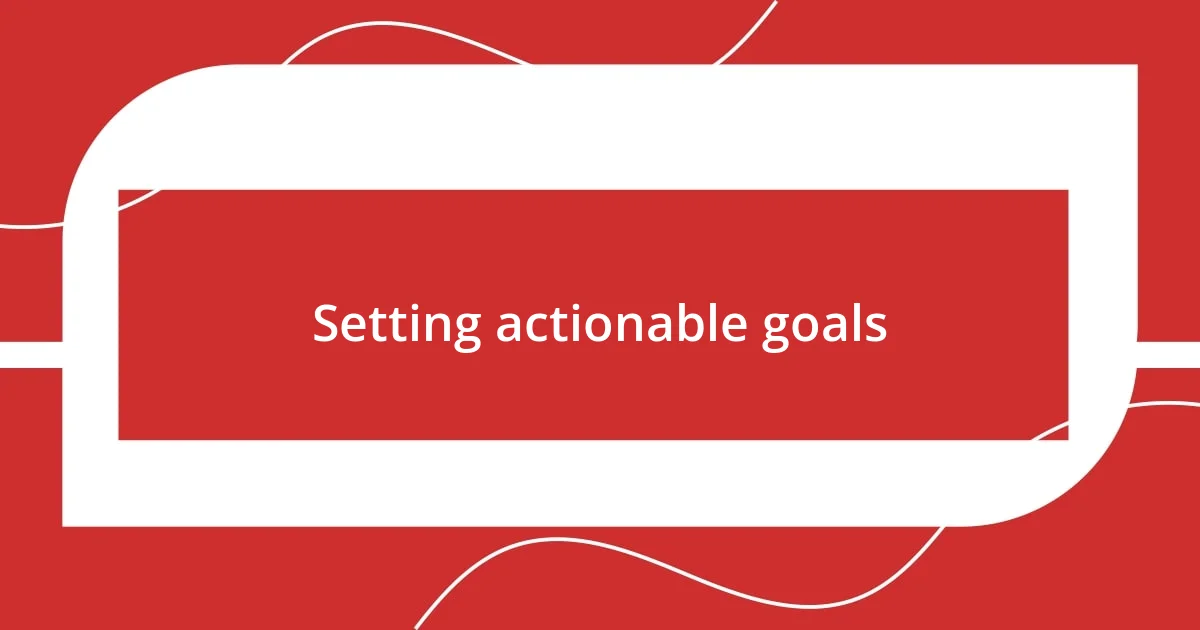
Setting actionable goals
Setting actionable goals has been a pivotal aspect of my journey in balancing work and workshops. I remember sitting down one afternoon, overwhelmed by my to-do list, when it hit me: without clear goals, I’d just be spinning my wheels. So, I began breaking down my overarching aims into smaller, manageable targets. For example, instead of saying “I want to improve my public speaking,” I set a specific goal to present at least once during each workshop I attended. This clear, actionable approach transformed my experience into something tangible and rewarding.
There’s something incredibly empowering about writing down your goals. Just last month, I set a goal to connect with at least three new professionals after a workshop. As I jotted this down, I felt a wave of motivation. By the end of the workshop, I not only met my goal but also expanded my network significantly. It made me wonder—what might we accomplish if we tailored our goals to align perfectly with our experiences? It’s all about clarity and intention; when you know what you want, it’s easier to navigate toward it.
Every now and then, I find myself revisiting my goals to ensure they remain relevant. Emotions often play a key role here; if I’m excited about a new opportunity or issue, I’ll adjust my goals accordingly. This flexibility keeps my aspirations aligned with my passions and ensures that I’m not merely taking the next workshop for the sake of participation. What’s your experience with goal-setting? I’ve found that having an ongoing conversation with myself about my goals really helps refine my focus and keeps me engaged with my professional development.
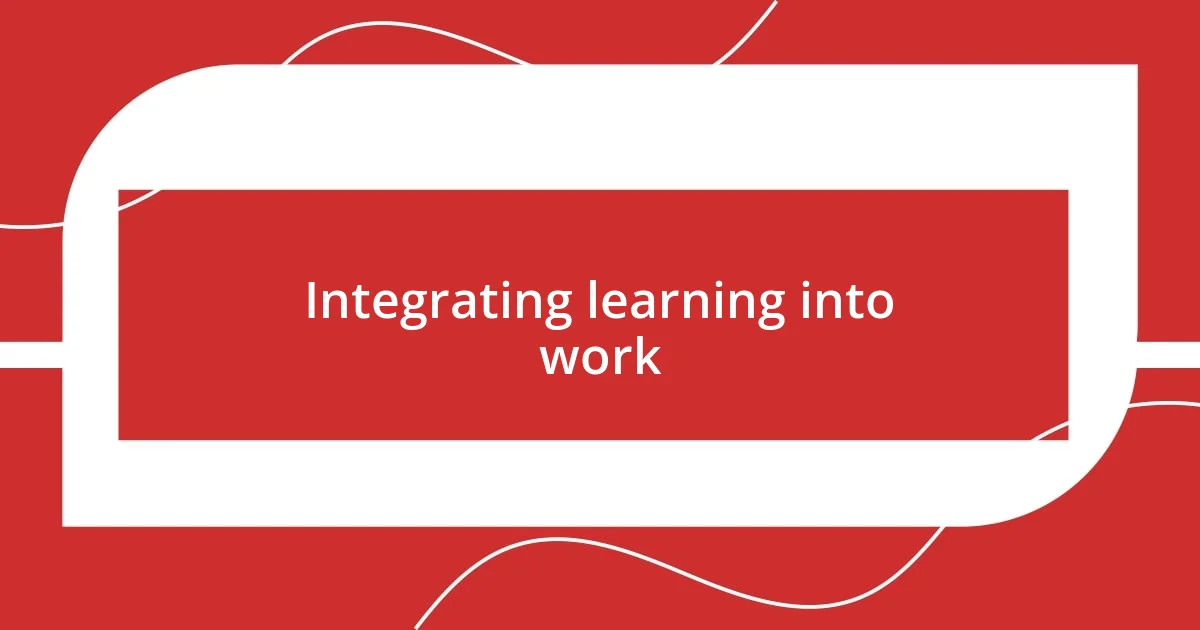
Integrating learning into work
One of the most effective ways I’ve found to integrate learning into work is by actively applying new skills and insights right after a workshop. I remember attending a session on digital marketing strategies and, inspired by the concepts, I made it a point to implement one idea the very next week. By crafting a targeted email campaign based on what I learned, I not only reinforced my understanding but also saw immediate results at work. It felt exhilarating to merge theory with practice—there’s something magical about witnessing your learning translate into tangible outcomes.
I also believe in sharing my newfound knowledge with colleagues. After returning from a workshop on leadership styles, I organized a casual lunch-and-learn session at my workplace. I was nervous at first, thinking, “Will they even care about what I learned?” But sharing my insights not only empowered my teammates but also solidified my understanding. I think this dual approach—learning and teaching—creates a vibrant cycle that enhances both personal growth and workplace collaboration. Have you ever considered how sharing knowledge can enrich your learning experiences?
Ultimately, I find it crucial to remain curious and open even during routine tasks. When I tackle familiar challenges at work, I consciously ask myself, “What if I approached this differently?” This simple shift in perspective often reveals unexpected insights and learning opportunities. Recently, while working on a project, I tried a new organizational method I picked up in a workshop. It transformed not just my workflow but also my enthusiasm for the project. How often do we overlook the chance to innovate in our day-to-day routines? Embracing this mindset fosters a culture of continuous learning, keeping me engaged and eager to grow.
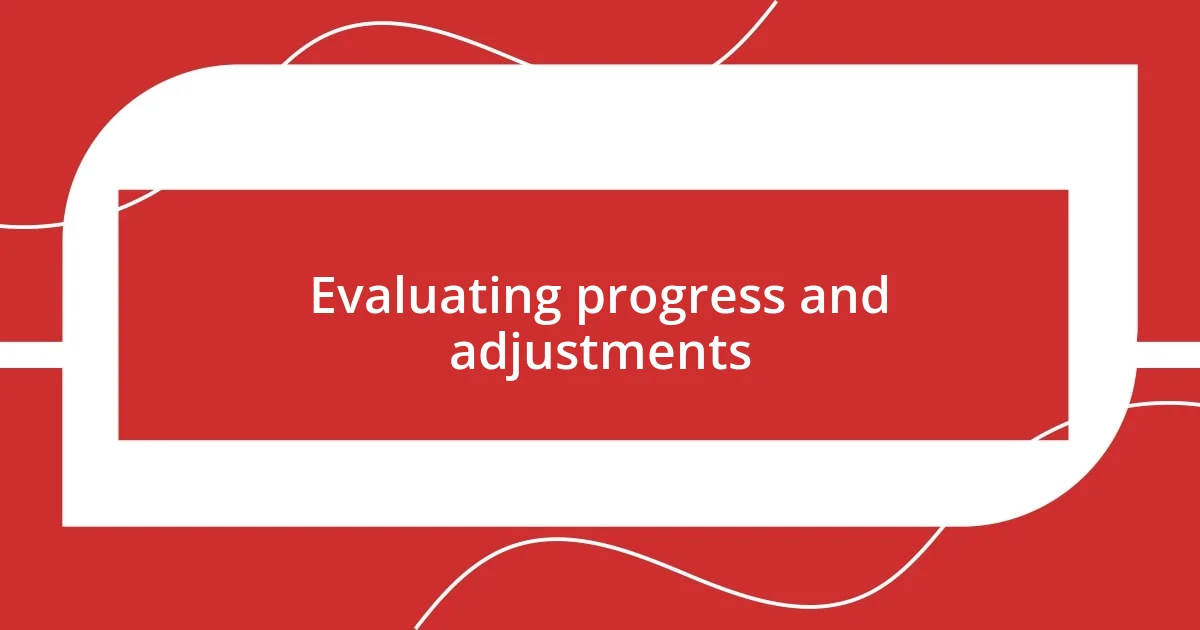
Evaluating progress and adjustments
Evaluating my progress has been a game changer for how I juggle work and workshops. For instance, after attending a recent workshop on time management, I took a close look at my daily routine. I realized I was spending too much time on tasks that didn’t align with my goals. This insight nudged me to re-prioritize my to-do list, allowing more time for applying what I learned. Have you ever had a revelation like that? It can be eye-opening.
I’ve also found that feedback, both from myself and others, plays a critical role in this evaluation process. One time, I asked a colleague to watch me during a presentation after a workshop on public speaking. Their feedback highlighted areas I had never considered before. This kind of constructive criticism has become a catalyst for refining my skills. It makes me wonder—what could we all achieve if we embraced feedback more openly?
Moreover, I regularly set aside time to reflect on what’s working and what isn’t. Recently, I started a monthly journaling practice, where I jot down my experiences from workshops and how I’ve applied them at work. This not only tracks my growth but also sparks new ideas. It’s fascinating how looking back can illuminate the path forward. Have you taken the time to evaluate your experiences? Trust me, those reflections can lead to powerful adjustments in your journey.
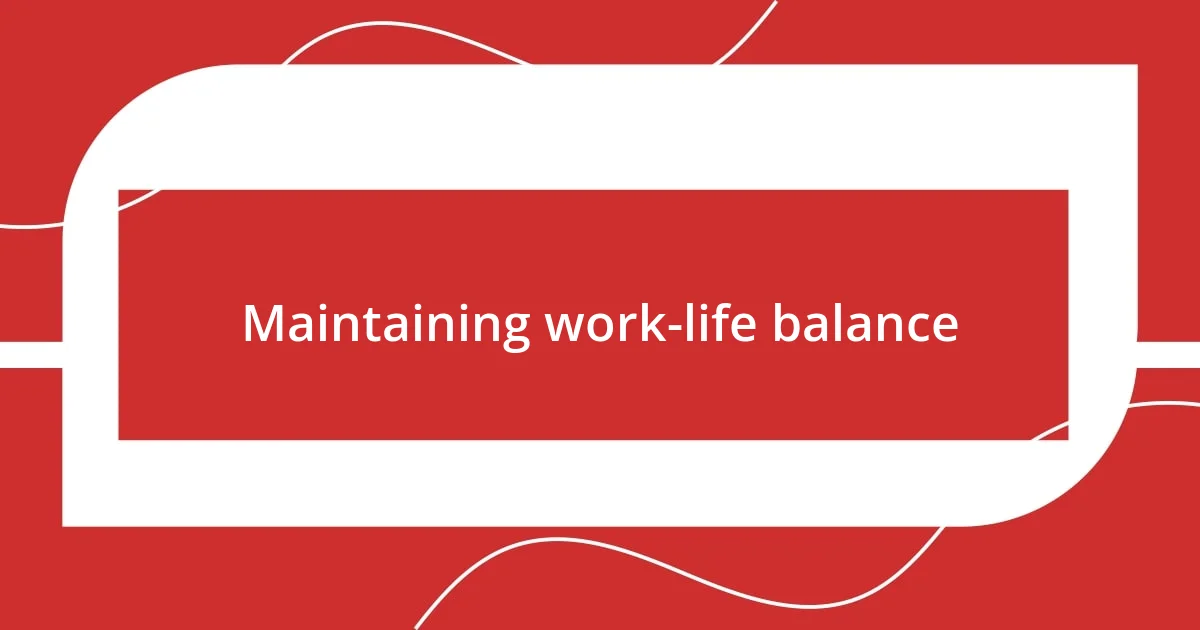
Maintaining work-life balance
Maintaining a work-life balance is more than just managing time; it’s about setting boundaries that allow personal fulfillment to coexist with professional obligations. I vividly remember a time I was pulled in every direction at work. To regain my sanity, I carved out “me time” in my calendar—a solid, non-negotiable block just for myself. It felt strange at first, almost indulgent, but soon, I realized it was crucial. That simple act of prioritizing my well-being boosted my productivity and focus at work. Have you ever tried seizing those small pockets of time just for you?
I also find it essential to communicate these boundaries with colleagues. When I felt overwhelmed, I candidly shared my challenges with my team. Surprisingly, rather than judgment, I received support and understanding, which reinforced our teamwork. It’s amazing how being open about our struggles can foster a supportive work environment. Have you thought about how your vulnerability might create stronger bonds at work? It’s a win-win for everyone involved.
For me, seeking balance is an ongoing journey, not a destination. I periodically check in with myself, asking, “Am I aligning with my priorities?” Just last month, I realized I was dedicating too much time to extra projects and neglecting my personal interests. This reflective moment prompted me to realign my commitments. It’s liberating to acknowledge when something isn’t serving you. How often do we get stuck in routines that don’t enrich our lives? Remember, recalibrating our focus can lead to a healthier, happier balance.










